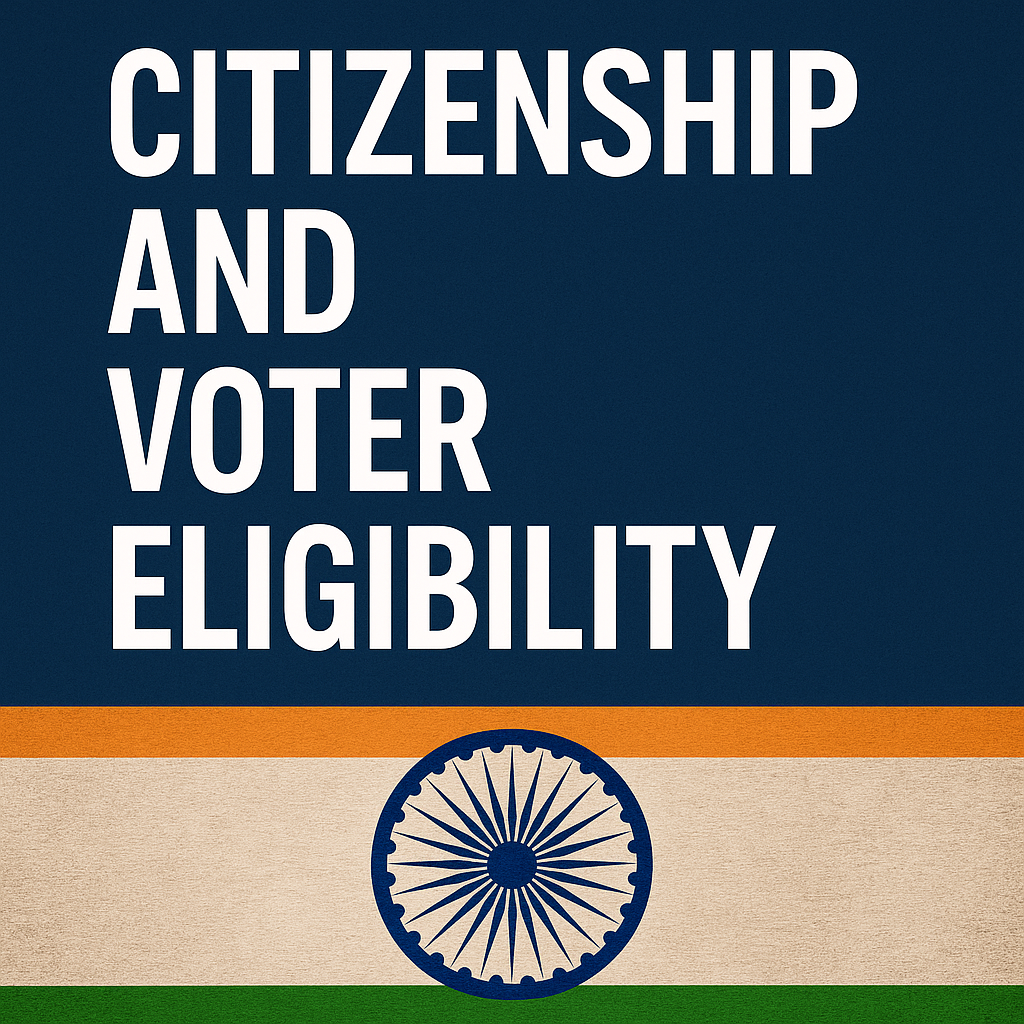
In a courtroom charged with constitutional questions and political implications, the Election Commission of India (ECI) has drawn a clear and assertive line between identity and eligibility. In its affidavit filed before the Supreme Court on Monday (21July, 2025), the Commission declared unequivocally that documents such as Aadhaar cards, Elector Photo Identity Cards (EPIC), and ration cards do not serve as conclusive proof of eligibility to vote. This assertion comes during the Commission's special intensive revision of electoral rolls in Bihar, a process that has sparked concern and litigation from opposition parties and civil society groups.
At the heart of the ECI’s submission lies Article 324 of the Constitution. This article vests the Commission with plenary authority to supervise and direct all aspects of elections. In its affidavit, the poll body argued that this constitutional mandate empowers it not only to prepare electoral rolls but also to scrutinize the validity of the documents offered as evidence of citizenship. The Commission pointed to the need to ensure that only eligible citizens are included in the voter list. Citizenship here is not a matter of mere identity but of legal qualification as per Article 326, which mandates that only Indian citizens aged eighteen or above have the right to vote.
The context for the affidavit is a batch of petitions filed before the Supreme Court challenging the legal basis, the process, and the implications of the ongoing Special Intensive Revision in Bihar. Petitioners, including several opposition parliamentarians and civil society organisations, argue that the exclusion of commonly held identity documents from the list of acceptable proofs could lead to mass disenfranchisement. The Commission, however, has firmly rejected this apprehension, stating that its approach is inclusionary and aims to ensure the purity of the electoral rolls.
Refuting the petitioners’ argument that only the central government may determine citizenship under the Citizenship Act of 1955, the Commission labelled such an interpretation as patently erroneous. It argued that while Section 9 of the Citizenship Act indeed assigns the central government the task of reviewing the acquisition of foreign citizenship, the Election Commission retains full authority to require a person claiming citizenship by birth to produce relevant documentation for enrolment in the electoral rolls. In other words, the Commission does not claim to adjudicate on the grant or denial of citizenship, but insists on its duty to verify it for the purposes of electoral inclusion.
Further reinforcing its stance, the ECI clarified that failure to prove citizenship for voter registration does not equate to the loss of citizenship. It is a procedural disqualification and not a legal disavowal of status. The Commission emphasised that the ongoing revision process is designed to be inclusive and illustrative rather than exhaustive. It is a proactive exercise to ensure that the electoral rolls are not marred by inclusion of ineligible persons or omission of eligible voters.
In explaining the rationale behind rejecting Aadhaar, EPIC, and ration cards as standalone proofs, the Commission underlined their inherent limitations. It stated that Aadhaar is merely an identity number and does not assist in establishing citizenship as required under Article 326. Ration cards, it said, are unreliable due to the widespread existence of fake entries and discrepancies. EPICs too, though designed as voter identity documents, are by-products of earlier electoral rolls and thus cannot replace the process of verification mandated for a fresh electoral list. Accepting these documents as conclusive proof, the Commission argued, would defeat the purpose of a de novo revision.
Instead, the guidelines of the Special Intensive Revision require the submission of one of eleven listed documents or their equivalents. These include proof of inclusion in the 2003 electoral roll and other official records. The Commission stressed that these guidelines are not rigid or exclusionary. They are illustrative and allow for discretion in exceptional cases.
It is significant that the ECI is asserting its constitutional autonomy at a time when electoral credibility has become a subject of increasing public scrutiny. In doing so, it has reminded both petitioners and the wider polity that the right to vote is contingent upon a structured framework of eligibility and not merely on possession of identity tokens. The Commission’s position underlines a larger constitutional principle — that the franchise in India is not a casual entitlement but a civic trust grounded in legal citizenship and regulated by statutory authority.
The Supreme Court is expected to hear the matter on July twenty-eight. Until then, the affidavit serves as a window into how the Election Commission interprets its constitutional role and defends the institutional integrity of India’s electoral machinery. The Bihar revision, which began several months ago and aims to prepare updated rolls ahead of the state elections, may well become a test case for the balance between inclusion and verification, between administrative discretion and constitutional mandate.
At stake is not just the eligibility of individual voters but the sanctity of democratic participation. As the debate unfolds, the Commission’s insistence on documentary rigour over symbolic identity marks a critical turn in the evolving grammar of Indian democracy.





















